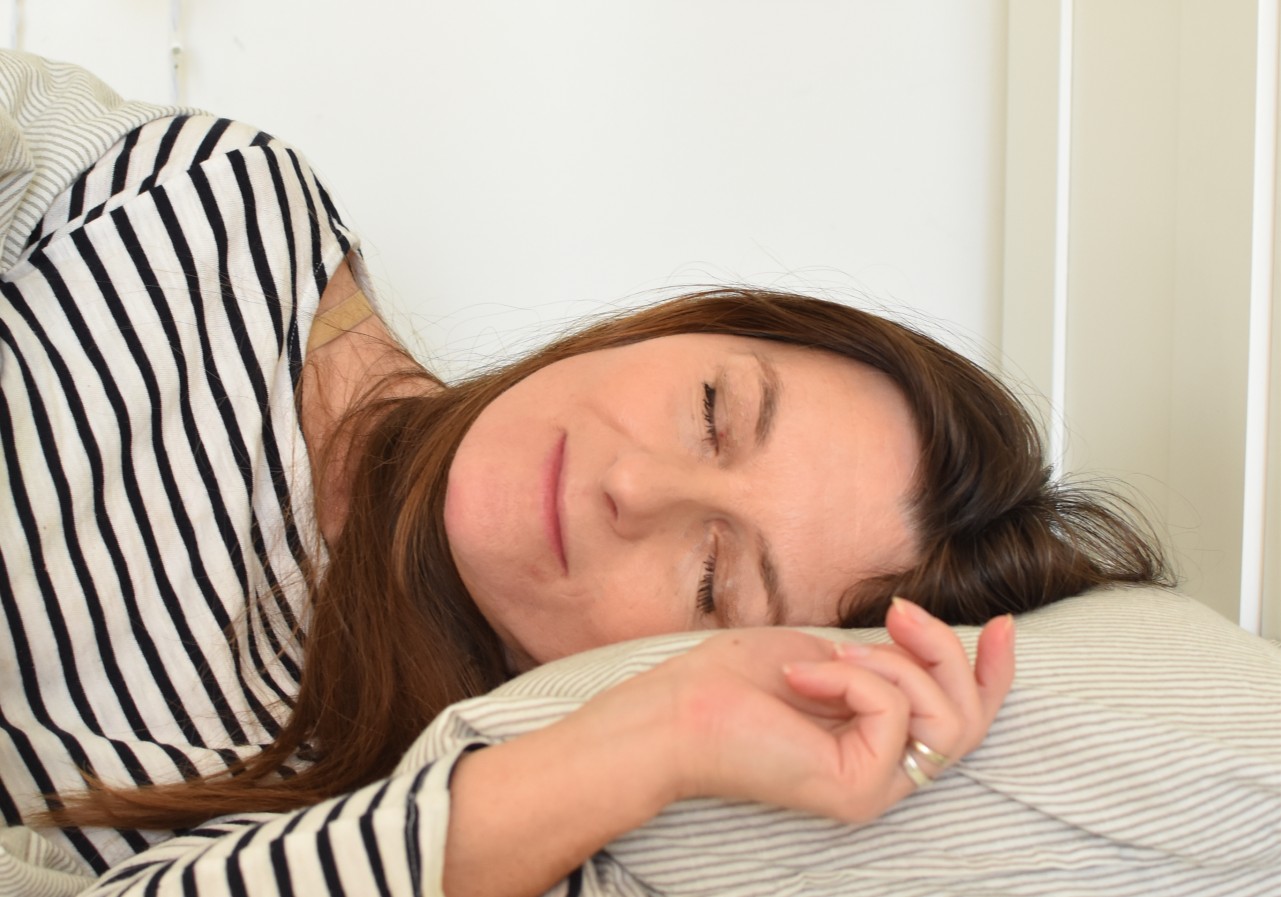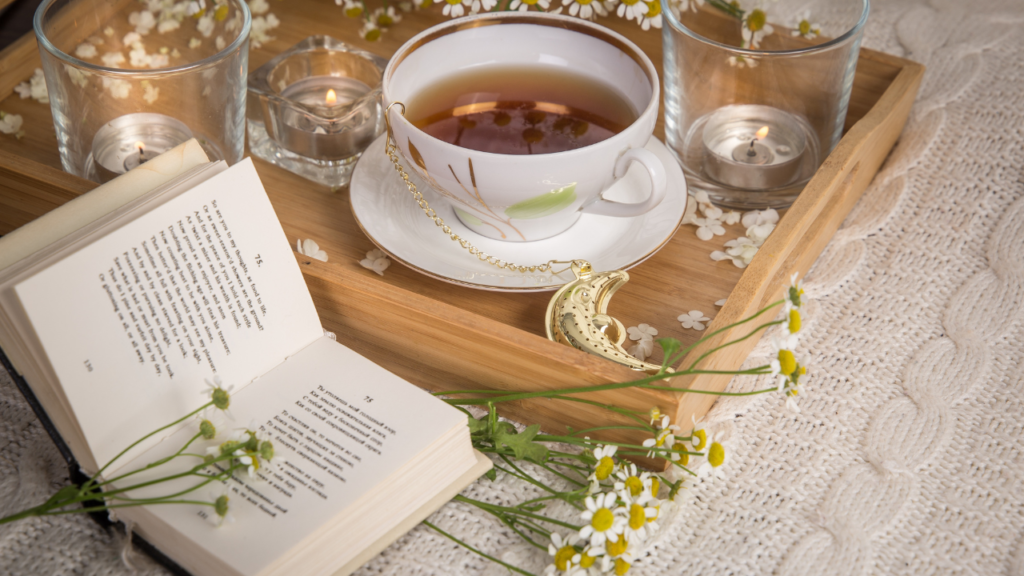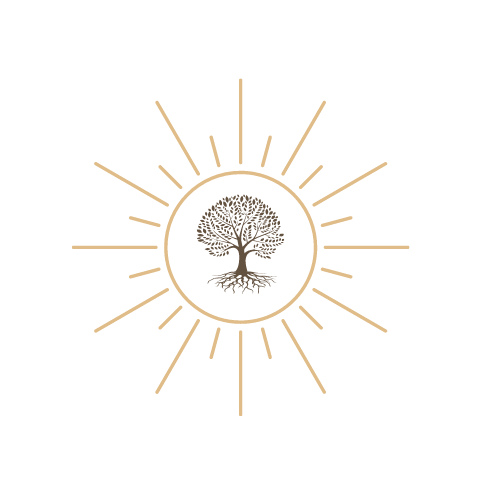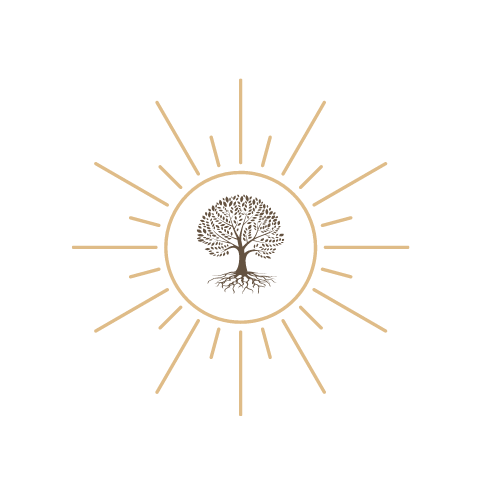
16 Feb How to sleep better and wake up rested in the morning – from tired night owl to fresh early bird
We’ve all had those nights when a wave of dread, exhaustion, and anxiety crashes over us like a storm. It keeps us wide awake, breaking our hearts and extinguishing any flicker of hope. The darkness is deep, icy, and unforgiving. The usual distractions like a glass of wine, TV, or a snack no longer offer any relief from the overwhelming problem. We desperately wish for someone to throw us a lifeline, but deep down we know that the only person who can truly save us is ourselves.
If this sounds familiar, then I’ve got great news for you! You have the power to transform those restless nights into nights of blissful sleep, enabling you to wake up refreshed and energized. I’ve been there, and I assure you that you can do it too! It may take some self-reflection, honesty, and effort, but trust me, it’s absolutely worth it!
Let me tell you that for the most of my life I was considering myself to be a so called night owl. I genuinely believed that being active and creative at night was just my natural state. It seemed like my best ideas and most productive moments occurred during the nighttime. Waking up before 8 in the morning was such an effort and I would not start my day without a big cup of coffee. My school and work later on was beginning at 8 am so you can only imagine torture I would experience every morning getting up! All I could dream of was the weekend so I can sleep for much longer.
Luckily, all of this is a past and now I wake up with ease at 5 am every morning feeling rested and would never want to go back to my old sleep patterns! Based on my personal experience and the transformation I went through, I believe that categorizing people as either “early birds” or “night owls” is a misconception. While we may have our differences, we are all part of the same human species and connected to nature’s biological rhythm. When we lose touch with this rhythm, we feel disoriented, lost, and ultimately exhausted. It’s a struggle. However, we can take this as an opportunity to learn and find healing.
According to ancient wisdom, the day is divided into specific energy and time zones that favor different human activities. We are an integral part of nature, and this is how it naturally operates. Ayurveda, Chinese medicine, and recent studies all concur that the best time to go to sleep is between 9:00 and 10:00 p.m. Ideally, we should already be asleep by 11 p.m., as the most restorative sleep occurs between 11 p.m. and 1 a.m. If we miss this window, no matter how much longer we sleep, we won’t wake up feeling refreshed and energized.
Why do we suffer from sleep problems?
There are many reasons and some of them may be very specific and differ from person to person but there are many common factors that do affect our sleep quality such as increasing stress levels, reduces exposure to natural sunlight and constant demands for attention due to technology. Here is just a short list that may help you with identifying the area in your life that requires attention:
A disorder that disrupts sleep, dealing with pain, or something like acid reflux or sleep apnea. Snoring (related to sleep apnea) can also disturb sleep.
A demanding, busy schedule. This can include lots of time commuting and family obligations.
High amounts of stress.
Effects of certain medications or stimulants.
Alcohol consumption or using other stimulants.
Eating a poor diet that can lead to blood sugar fluctuations.
Eating too close to bedtime, or not eating enough with dinner/later in the day (such as if you’re fasting).
Pregnancy and experiencing other hormonal changes.
Staying up late using the computer, phone or watching TV ( disruptive blue light )
Wanting more time at night to “wind down” and relax after a demanding day ( unfinished work project, homework )
Feeling stressed and overwhelmed in general, which interferes with sleep.
Due to the effects of a poor diet, too little exercise during the daytime, and a lack of sunlight exposure.
Engaging in stimulating activities before bed. For example, playing video games, doing something active that gets their heart rate up, or reading something that increases alertness.
One major issue that was stopping me from falling asleep, was the inability to switch off my thoughts and worries once I laid down in bed. I know this is a common problem, especially among women. That’s why it was crucial for me to discover various techniques to calm and control my mind. Once we learn how to do that, we can quiet negative thoughts and anxiety. There are numerous methods to achieve this, and I encourage you to try a few to find what works best for you. Personally, I find going for a walk before bed, reading positive books, or practicing meditation with breathing exercises to be incredibly helpful. You might also find benefits in aromatherapy, taking a bath with magnesium salt, or listening to relaxing music.
Why is good sleep so important to us?
There’s a lot of buzz about the importance of eating right and staying active, but not many people realize that sleep is just as crucial for a healthy lifestyle. Ancient teachings like Ayurveda and Traditional Chinese Medicine have always emphasized the significance of sleep. It’s right up there with a balanced diet and exercise when it comes to maintaining good health, well-being, and longevity. Sleep has this amazing power to rejuvenate and heal our body, mind, and spirit. No matter how great our food or medicine is, if we neglect the foundations of life, like sleep, they won’t be able to help us. Sleep plays a vital role in connecting our mind, body, and inner self. It acts as a buffer, shielding our mind from the day’s stress and allowing us to recharge. Despite living in urban areas surrounded by modern civilization, nature still has a profound impact on our well-being and health. When we disrupt our natural sleep-wake cycle, it triggers biochemical changes in our body. Studies have shown that people who work night shifts or stay up late at night have a thirty percent higher risk of heart attacks. Even mice whose activity patterns were shifted to nighttime had eleven percent shorter lifespans compared to those who were active during the day and slept at night. Sleep truly is one of the key elements in our overall health.
During sleep, our mind and vitality are refreshed. There are also processes necessary for the proper functioning of the body, such as the elimination of toxins by the liver. Chinese medicine emphasizes that good sleep and going to bed early (even just after 9 p.m.) regenerates and strengthens the kidneys, which are the source of our energy and youth. Research shows that a pervasive lack of healthy sleep leads to much more serious health problems than just feeling tired the next morning.
It’s been proven that not getting enough sleep can actually lead to obesity. I know, it sounds crazy, but hear me out. When we sleep, our body produces growth hormone. Now, as adults, this hormone doesn’t make us grow taller or anything, but it does play a crucial role in many important processes, including our appetite. So, when we don’t get enough sleep, our body craves more food to make up for the lack of energy. That’s why sleep-deprived people tend to eat more. And here’s another interesting tidbit: our body also produces growth hormone during meditation. Pretty cool, isn’t it?
Not getting enough quality sleep can also result in elevated blood pressure and a weakened ability to fight off infections. In a particular study, individuals who stayed awake for seventy-two hours experienced a significant decline in the production of white blood cells, indicating a compromised immune system. Additionally, it has been scientifically established that insufficient sleep contributes to a negative mood, impaired memory, and reduced concentration, ultimately leading to a decrease in overall energy and enjoyment of life.
What is the perspective of holistic medicine on sleep? According to therapists who practice holistic medicine like Ayurveda and Chinese medicine, health is all about maintaining the internal energy balance of the body. They prioritize prevention and restoring the body’s optimal functioning, which essentially means bringing back its internal balance. One approach to achieve this is by restoring balance to the mind. When the mind is balanced, the body follows suit.
We have access to this natural balance. Every living being on Earth operates in harmony with it. They don’t rely on alarm clocks to wake up or sleep-inducing drops to fall asleep. Although we have forgotten how to tap into this innate balance, we can rediscover it and learn once more.
It’s not in our nature to stress out at night, but rather to recharge and rejuvenate while we sleep. We’re not powerless. By taking charge of our health, life, and overall well-being, we can experience numerous benefits. Chinese medicine and Ayurveda suggest that the day is divided into energy zones based on our natural biological clock.
For example, between 6 p.m. and 9 p.m., it’s the perfect time to unwind and enjoy pure pleasure and relaxation after a long and busy day. It’s all about family, dinner, togetherness, and having fun – these are the things that nourish us in every way possible (physically, emotionally, and spiritually). They help us live, recharge, and grow. However, once it hits 10 p.m., it’s time to go to sleep. If we don’t get enough sleep, all the negative emotions like fear, anxiety, and the urge to argue will only intensify. That’s why it’s completely unproductive and meaningless to ponder over our life problems at night. It’s just exhausting and draining. We need to make sure we wake up before 6:00 a.m. because that’s when Kapha time starts. If we sleep past 6:00, it becomes harder for us to get up and get going. It can make the whole day feel more challenging, with feelings of being overtired, oversleeping, and being irritable. Healthy life requires balance, and the absence of it results in illness. Illness is essentially an imbalance. Hence, it is crucial to actively pursue a harmonious blend of daily engagements and nighttime repose. During the evening, it is advisable to clear our minds of any mental viruses, much like how we cleanse our computers. This analogy is quite profound: if we neglect to regularly clean our dusty computers, they will overheat and malfunction. Similarly, we mustn’t allow our minds to become an overflowing dumpster.
A mind that is filled with filth and pollution has no opportunity to relax and rejuvenate before bedtime. If we introduce alcohol or unhealthy food into the mix, we have the perfect recipe for feeling absolutely awful. When the mind is anxious or agitated before sleep, it stays connected to the senses, keeping them alert, stressed, and stimulated. As a result, sleep becomes restless and far from restful.
A serene and positive mindset leads to a peaceful and rejuvenating sleep, providing us with the energy to tackle the daily hurdles of life. The key lies in the quality of sleep rather than its duration. The more deeply we sleep, the more our mind and body can recharge. By prioritizing good sleep, we unlock its incredible healing and revitalizing powers. With a restful slumber, we wake up feeling healthier, happier, and brimming with vitality. We become ready to take on whatever comes our way! Even amidst life’s chaos, we can still achieve a good night’s sleep.
Practical changes and rituals that helped me and my family achieve a good healthy sleep:
My evening rituals are a source of comfort, helping me unwind, destress, and find my own little haven. These routines benefit not just me, but also my entire family, especially the kids. When parents are well-rested and rejuvenated, it positively impacts their children, filling them with joy, strength, and healing energy.
Time spend in nature and exposure to natural light
Almost every living creature possesses an internal 24-hour clock, commonly known as a “circadian rhythm.” This mechanism aids in maintaining a healthy balance between active hours and periods of rest. For humans (and numerous other creatures), exposure to natural light plays a crucial role in regulating the tens of thousands of brain cells responsible for establishing the circadian rhythm. Melatonin levels in our body fluctuate based on the amount of light we are exposed to. They reach their highest point during the night when its dark to aid in sleep. As dawn breaks and daylight emerges, these levels decrease to keep us awake and alert throughout the day.
We try to spend as much time outside as possible and we stopped wearing sunglasses many years ago which I think was a game changer! Getting some sunlight during the day can actually do wonders for your sleep. It helps your body produce melatonin, which is essential for regulating your sleep patterns and overall circadian rhythm. So, make sure you soak up enough sunlight during the day to ensure a good night’s sleep and a refreshed body.
No blue light after 8 p.m.
Non negotiable in our home!
Instead of relying on your phone, computer, or TV, why not engage in a more peaceful activity that doesn’t involve exposure to “blue light”? The intense glow from electronic screens can make you more alert by affecting your eyes and brain, and it might even trigger headaches. Instead, why not give reading a fiction book a try? Or explore something inspiring or related to spiritual growth?
We love to do a variety of activities to relax and unwind. One of our favorites is curling up with a good book and getting lost in its pages. Another activity we enjoy is listening to soothing music, especially light jazz which is at the top of our playlist. It’s amazing how even our cat seems to sense the tranquility and falls into a deep sleep when these smooth tunes play. Gentle yoga stretches are also a great way to relax and improve the flow of energy in our lives. And on days when we need a little extra, we find that meditation combined with breathing techniques works wonders. It’s important to remember that different activities work better on different days, so it’s always worth experimenting to find what truly calms and rejuvenates your body, mind, and spirit.
We ALWAYS turn our phones and Wi Fi OFF at bedtime!
Food and drinks:
It’s best to have a light dinner around 2-3 hours before going to bed. It’s important not to overload or starve our bodies while we sleep. Avoid having spicy, fatty, or fried foods for dinner. After 5 p.m., it’s a good idea to steer clear of drinks that contain caffeine. Contrary to what many people think, alcohol doesn’t help you sleep well! After a few hours of drinking alcohol, your blood alcohol level drops, which can cause your body to wake up. Instead of having a glass of wine before bed, it’s better to enjoy a warm and delicious infusion of lemon balm or chamomile flowers an hour before bedtime. This will bring us peace, relaxation, and relief, and in the morning, we’ll wake up with a beautiful face and a radiant smile!
Using lavender oil in aromatherapy can have a relaxing and calming impact on our nervous system. Whether we add a few drops to an aromatherapy burner or mix it into our bath, it helps to soothe our tired mind and senses after a long day. For extra help, you can additionally supplement with magnesium within 1 hour of going to bed.
Physical activity:
Regular physical activity, whether it’s for 30–60 minutes each day, has been proven to enhance your sleep quality. If you can manage to exercise outdoors, even better! It helps regulate your body’s internal clock, making you feel more relaxed and ready for a good night’s sleep. However, be cautious about working out too close to bedtime as it might make you more alert and make it harder to fall asleep. It’s all about finding the right balance that works for you. Instead of forcing yourself to follow a schedule that you dislike, opt for a time that you find enjoyable and can stick to consistently.
Your bedroom:
Make sure to create a dark and slightly cooler environment in your bedroom compared to the rest of your house. A cooler room can help lower your core body temperature, which can make you feel more sleepy. I love sleeping with the window open even during the winter and am grateful that there are no loud and disturbing noises coming to my bedroom from outside. And let’s not forget about finding the right pillow that suits us. Every person has different needs, for example I sleep without any pillow, my daughter uses natural buckwheat husk filler, my husband loves high pillow and my son sleeps on medium high, medium hard one. There is no one pillow that fits all so make sure that you take the time to find your comfortable way.
How to change your sleep patterns and start waking up early in the morning?
Every change requires time and patience. I believe that to make it easier and long lasting we must be fully ready to embrace it and to commit. Kindness and love towards yourself is also very helpful. For those who stay up late and struggle to adjust, it is advised setting an alarm for 4:30 or 5:00 AM for several consecutive days and getting up at that time without fail. They should absolutely avoid napping during the day, even if they feel extremely tired. After three or four days, the body should automatically adjust to the rhythm of falling asleep and waking up early, which is in line with the natural rhythm of nature.
Few words for moms who have a new baby or a small child and struggle with getting enough sleep.
It’s been a while since my children were little but I still remember how difficult it can be to work out a new routine especially with your first baby. We tried many things and the one that worked best for all of us was having my baby in bed with us. I noticed that between feeding my son ( and than my daughter ) was sleeping sound and better than in their crib which allowed me to get better rest too. From the time perspective, I am very happy that we did it with both our kids and the bond we have now is really deep.
When the kids were bigger things changed naturally and even though they would sleep in their own beds, we still kept our evening routine. There were many evenings when I would fall asleep alongside my kids at 8 or 9 p.m. That’s why I made sure to prepare myself for sleep as well. I washed myself, changed into my cozy night clothes, and then snuggled up with them to read a bedtime story. Following a consistent evening sleep routine is beneficial for both the little ones and their mothers. It’s recommended that our children go to bed between 8 p.m. and 9 p.m. and get at least 9.5 hours of sleep. If your children resist going to bed early, it might be worth reflecting on yourself and the dynamics at home. Remember, any changes or improvements should start with you. When parents are calm and balanced, it helps create calm and balanced children. That’s the way things should be. While our children sleep, they grow and strengthen their immune system (thanks to the growth hormone), and mothers not only recharge but also feel rejuvenated. Most importantly, be kind and loving to yourself and try to find a joy even in those challenging times because as with everything this will pass too.
I hope you are ready and motivated to look closely at your life and create changes that will benefit you for the rest of your life. I am with you and wish you all the best on this new and exciting journey!
with love,
Basia




